
Rhetoric Jinsong yang
Rhetoric Jinsong yang
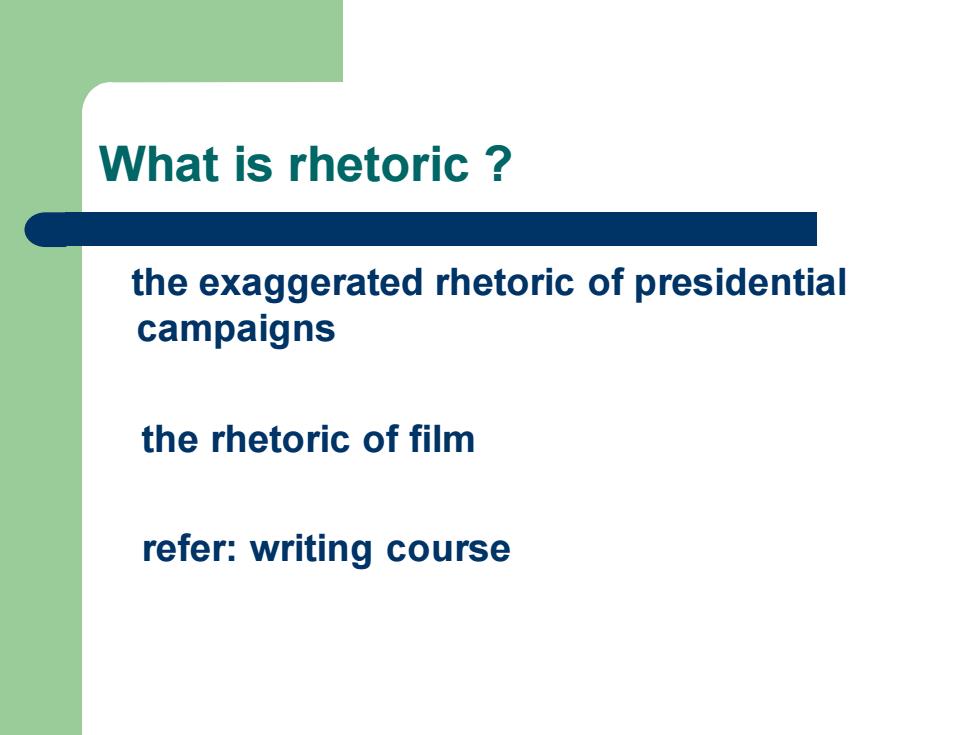
What is rhetoric the exaggerated rhetoric of presidential campaigns the rhetoric of film refer:writing course
What is rhetoric ? the exaggerated rhetoric of presidential campaigns the rhetoric of film refer: writing course

Greek pnTopikos (rhetorikos), "oratorical'”, → (rhetor),"public speaker“, verb apw (ero):to speak,say In its broadest sense:rhetoric concerns human discourse
Greek ῥητορικός (rhētorikós), "oratorical”, (rhḗtōr), "public speaker“, verb ἐρῶ (erô): to speak, say In its broadest sense:rhetoric concerns human discourse
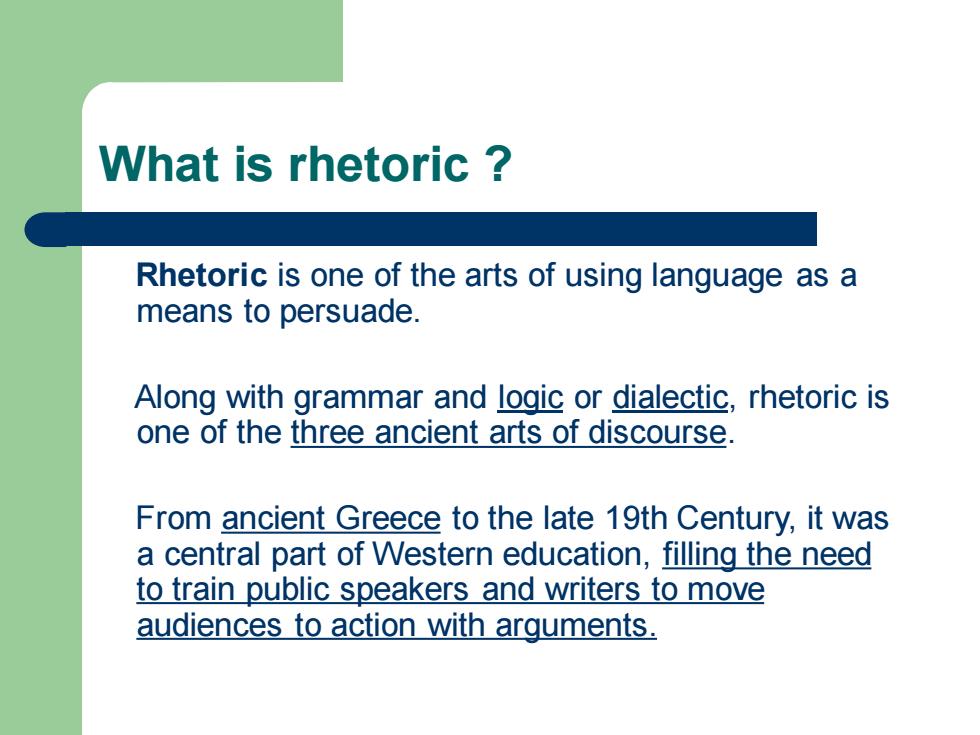
What is rhetoric Rhetoric is one of the arts of using language as a means to persuade. Along with grammar and logic or dialectic,rhetoric is one of the three ancient arts of discourse. From ancient Greece to the late 19th Century,it was a central part of Western education,filling the need to train public speakers and writers to move audiences to action with arguments
What is rhetoric ? Rhetoric is one of the arts of using language as a means to persuade. Along with grammar and logic or dialectic, rhetoric is one of the three ancient arts of discourse. From ancient Greece to the late 19th Century, it was a central part of Western education, filling the need to train public speakers and writers to move audiences to action with arguments
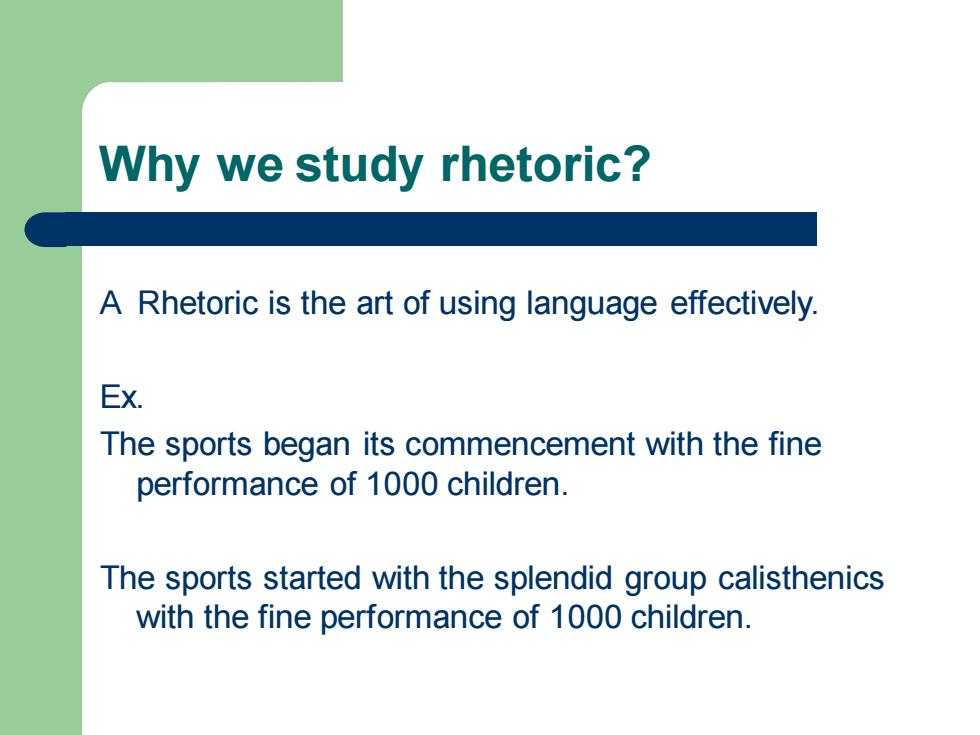
Why we study rhetoric? A Rhetoric is the art of using language effectively. Ex. The sports began its commencement with the fine performance of 1000 children. The sports started with the splendid group calisthenics with the fine performance of 1000 children
Why we study rhetoric? A Rhetoric is the art of using language effectively. Ex. The sports began its commencement with the fine performance of 1000 children. The sports started with the splendid group calisthenics with the fine performance of 1000 children

Why we study rhetoric? B:Grammar maps out the possible;rhetoric narrows down the possible to the desirable and effective. Ex. The middle-class American growing up in the United States feels it is his right to have his own room,or at least using part of a room. Faulty parallel structure
Why we study rhetoric? B: Grammar maps out the possible; rhetoric narrows down the possible to the desirable and effective. Ex. The middle-class American growing up in the United States feels it is his right to have his own room, or at least using part of a room. Faulty parallel structure
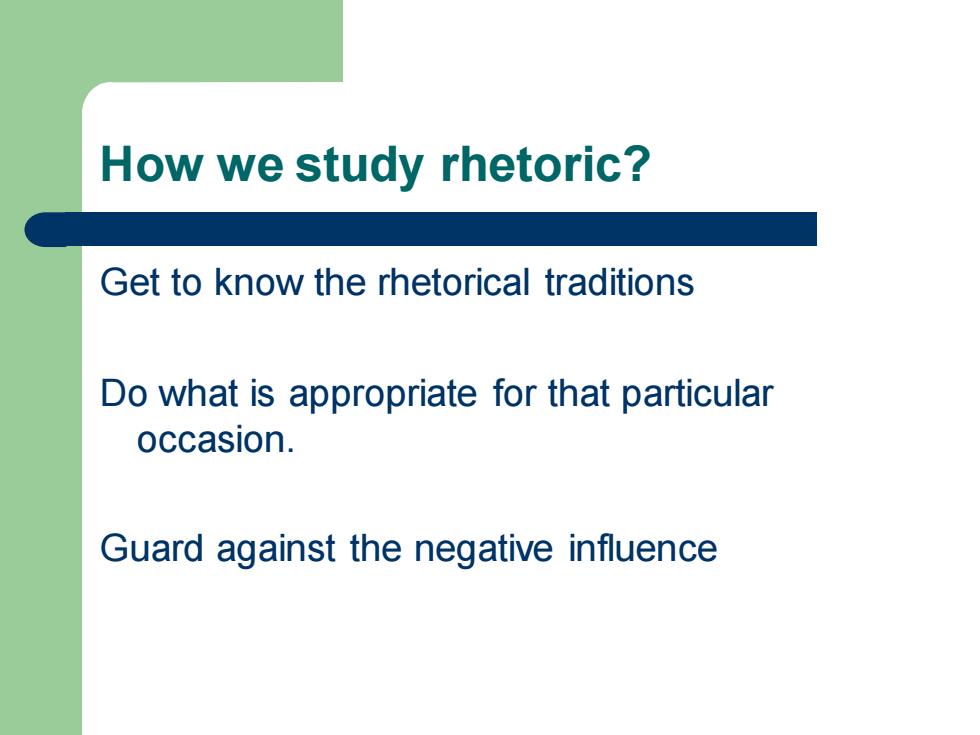
How we study rhetoric? Get to know the rhetorical traditions Do what is appropriate for that particular occasion. Guard against the negative influence
How we study rhetoric? Get to know the rhetorical traditions Do what is appropriate for that particular occasion. Guard against the negative influence

What is the scope of rhetoric? While classical rhetoric trained speakers to be effective_persuaders in public forums and institutions like courtrooms and assemblies, contemporary rhetoric investigates human discourse writ large. Public relations,lobbying,law,marketing professional and technical writing,and advertising are modern professions that employ rhetorical practitioners
What is the scope of rhetoric? While classical rhetoric trained speakers to be effective persuaders in public forums and institutions like courtrooms and assemblies, contemporary rhetoric investigates human discourse writ large. Public relations, lobbying, law, marketing, professional and technical writing, and advertising are modern professions that employ rhetorical practitioners
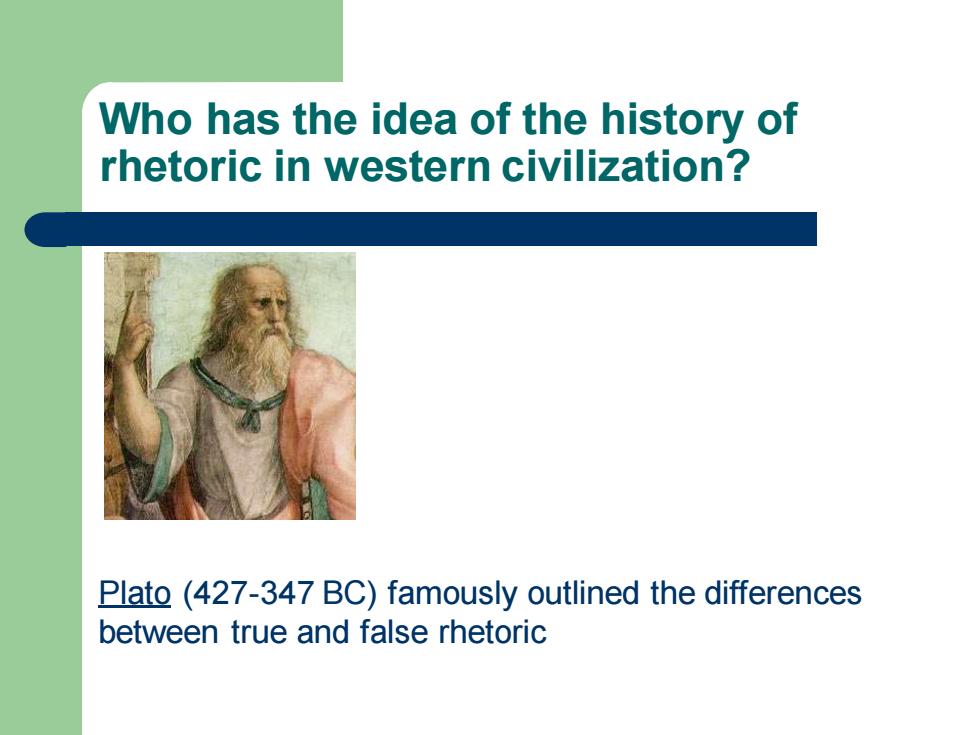
Who has the idea of the history of rhetoric in western civilization? Plato (427-347 BC)famously outlined the differences between true and false rhetoric
Who has the idea of the history of rhetoric in western civilization? Plato (427-347 BC) famously outlined the differences between true and false rhetoric
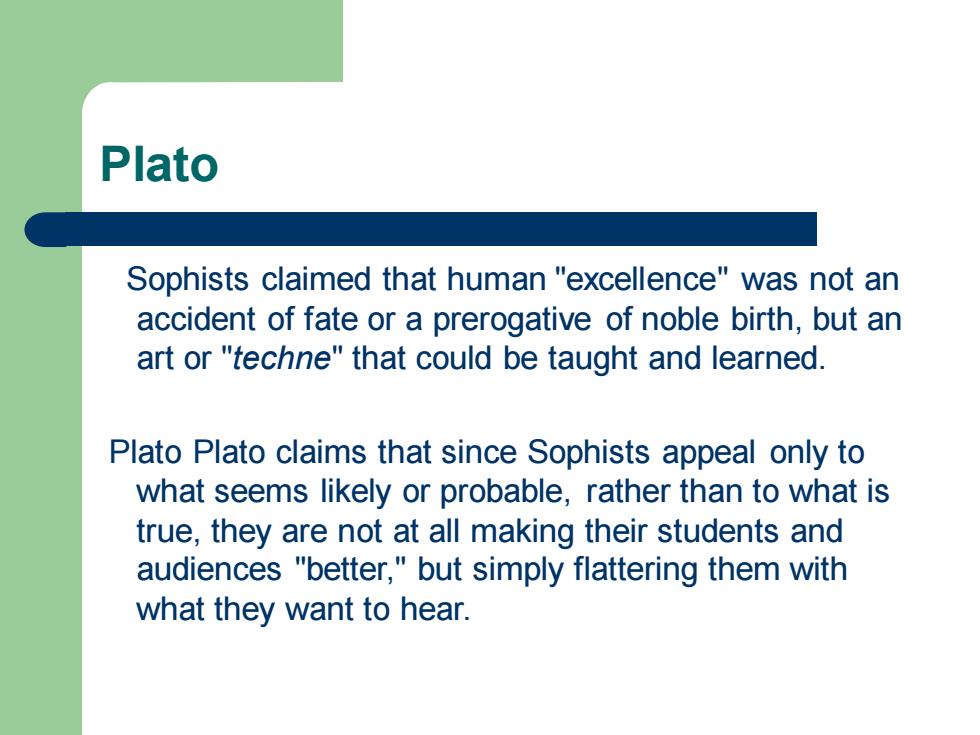
Plato Sophists claimed that human "excellence"was not an accident of fate or a prerogative of noble birth,but an art or "techne"that could be taught and learned. PlatoPlato claims that since Sophists appeal only to what seems likely or probable,rather than to what is true,they are not at all making their students and audiences "better,but simply flattering them with what they want to hear
Plato Sophists claimed that human "excellence" was not an accident of fate or a prerogative of noble birth, but an art or "techne" that could be taught and learned. Plato Plato claims that since Sophists appeal only to what seems likely or probable, rather than to what is true, they are not at all making their students and audiences "better," but simply flattering them with what they want to hear